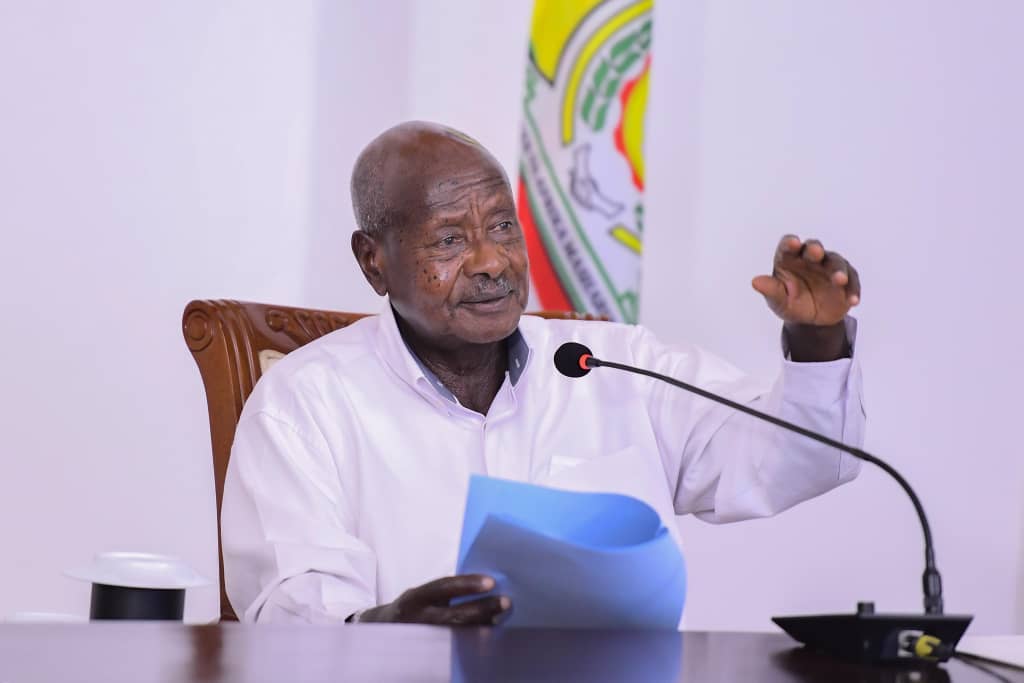In a televised end-of-year address delivered from his residence in Rwakitura, President Yoweri Kaguta Museveni announced a significant policy change targeting village theft, a pervasive issue in Uganda’s rural communities. He declared a ban on granting police bonds to individuals accused of theft, particularly of livestock such as cattle and goats, emphasizing stricter legal measures against such crimes.
“The leniency shown by police and courts in issuing bonds and bails has emboldened criminals,” Museveni stated. “Police officers who continue to grant bonds in cases ready for trial will face serious consequences.”
The President highlighted the success of firm judicial processes in Karamoja, where the Military Court Martial has sentenced over 3,000 youth involved in criminal activities. He credited this for the peace now prevailing in Karamoja and neighboring regions. Museveni also called for programs to provide skills training to incarcerated individuals to facilitate their reintegration into society.
“Legal firmness benefits both communities and offenders. With proper skilling, those leaving prison can contribute to their families and the nation by creating wealth and jobs,” he explained.
Museveni praised Uganda’s agricultural progress, attributing improved coffee prices to strategic drought conditions in other coffee-producing countries and the implementation of the National Resistance Movement’s (NRM) 1996 manifesto on intensive agriculture. The plan encouraged farmers to use small plots of land efficiently for high-demand crops like coffee and fruits.
However, he raised concerns about premature coffee harvesting, warning it could tarnish Uganda’s reputation on the global market. “Immature coffee compromises quality, which harms our economy,” Museveni stressed. “Authorities must engage idle youth in productive ventures to curb theft and dishonesty in agriculture.”
The President hinted at deploying local defense units (LDUs) to protect farmers’ property if the issue persists.
Reflecting on Peace and Security
Museveni lauded the efforts of Uganda’s security forces in maintaining peace throughout 2024, citing their swift responses to threats such as the Allied Democratic Forces (ADF) attack in June. He credited a combination of divine blessings, a strong military, and public support for the nation’s stability.
He also condemned external and internal actors attempting to destabilize the country, assuring citizens that Uganda remains resilient against such plots.
Despite Uganda’s stability, the President expressed regret over the year’s natural disasters, including landslides, floods, and accidents. He urged citizens to avoid constructing homes in high-risk areas like wetlands and steep slopes.
On public health, Museveni cautioned against the spread of monkeypox, advising prompt medical attention and self-isolation for those showing symptoms. He also warned against irresponsible behavior, such as unprotected and indiscriminate sexual activity, which could exacerbate the disease’s spread.
The President concluded by congratulating Ugandan athletes for their exceptional performances in international competitions. He expressed optimism about Uganda hosting major sporting events, including CHAN in 2025 and AFCON in 2027, in collaboration with Kenya and Tanzania.
“Peace and stability have allowed our sports talents to shine. We remain committed to improving infrastructure to support these achievements,” he remarked.
Museveni reiterated his commitment to strengthening the economy, enhancing security, and improving the lives of all Ugandans.




